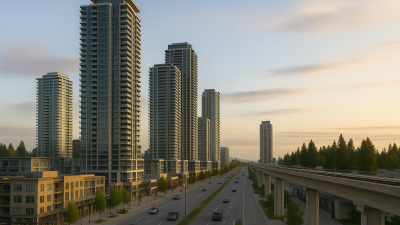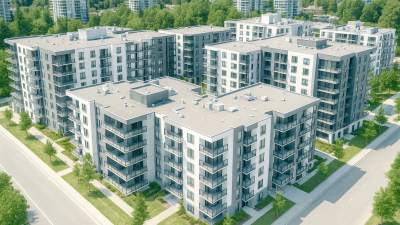Calgary's real estate market is going to have a lot of eyes on it in 2024. It’s clear an evolution is unfolding, fueled by dynamic shifts in migration patterns, economic activities, and a burgeoning population. These trends are changing the makeup of the city and redefining affordability and investment opportunities within its borders. Especially when compared to the other major cities in the nation, Calgary is fast becoming a place of opportunity in the Canadian real estate landscape.
A Surge in Population and Migration
The narrative of Calgary's real estate market cannot be told without highlighting the significant influx of residents migrating from provinces such as Ontario and British Columbia, which have seen a decline in their populations for over a year. This trend has propelled interprovincial migration to Alberta, increasing by 10,000 or more individuals for five consecutive quarters — a first since such data began being recorded in 1971. Statistics Canada's data shows this shift, revealing that in the first three quarters of 2023 alone, Alberta welcomed approximately 45,000 new residents. Notably, about 75% of BC’s interprovincial migrant attrition favoured Alberta in the latest quarter, with Ontario also contributing significantly to this influx.
The main driver behind this rise is non-permanent immigration, largely attributed to an uptick in work and study permit holders, alongside a slight increase in refugee claimants. Despite the dampening effect of higher lending rates on housing demand, the influx of migrants has kept the demand for housing particularly buoyant, especially for more affordable options within the market. Calgary's population is projected to grow by 62 residents daily for the next several years.
Increases Across Prices and Transactions
The market in Calgary has seen a year-over-year price increase of about 12% across the board. Despite this uptick, Calgary remains very affordable compared to other Canadian metropolitan areas. The average single-family home price sits at $759,000 and the average condo price at $337,000. The city experienced a 37% surge in transaction volume year over year and is currently at its lowest vacancy rate in over a decade at 1.4%.
According to the Calgary Real Estate Board (CREB), inventory levels have consistently lagged behind long-term trends for most of 2023, averaging a 44% decline over the 10-year average. January 2024 saw a significant gain in sales, surpassing both last year’s levels and long-term trends, particularly in the segment of homes priced above $700,000. CREB found that though the average annual benchmark price growth did slow from 12% in 2022 to nearly 6% in 2023, the market's resilience is evident with price growth remaining robust, especially when compared to other markets across the country.
Investment Potential Found in Presale and Rental
The scarcity of housing has precipitated a vibrant market for both presale and rental properties, presenting a lucrative opportunity for investors. Taylor Musseau, EVP Sales & Marketing, Partner, Okanagan for MLA Canada pointed out, “A significant shortage in housing in Calgary is leading to a bustling market in both presale and rental. It's a great opportunity for investors to pick up presale units.”
Calgary’s competitive rental rates offer a compelling case for presale investors aiming for rental properties that yield revenue, as the city's median rental rate stands almost 5% higher than the national average. “Rental rates in Calgary are competitive with major cities, yet the barrier to entry is significantly lower compared to Vancouver and Toronto,” continued Musseau. “This offers presale investors an opportunity to purchase rental properties that potentially have a positive cash flow upfront.”
A Market We’re Watching
The drivers of Calgary's economic and real estate landscape are shifting. What was historically subject to boom-and-bust cycles is moving towards a more diversified and stable growth. The city is being recognized for its burgeoning tech, research, and innovation sectors, alongside a resilient energy industry. Initiatives aimed at repurposing corporate office space in the downtown core into apartment conversions are underway, aimed at densifying the core and mitigating the housing shortage. Musseau is optimistic: “The future looks bright for Calgary as it continues to grow and offer diversity to its residents and newcomers. This is a more sustainable growth.” We are keeping watch on this evolving market and its potential for investment amid affordability.



